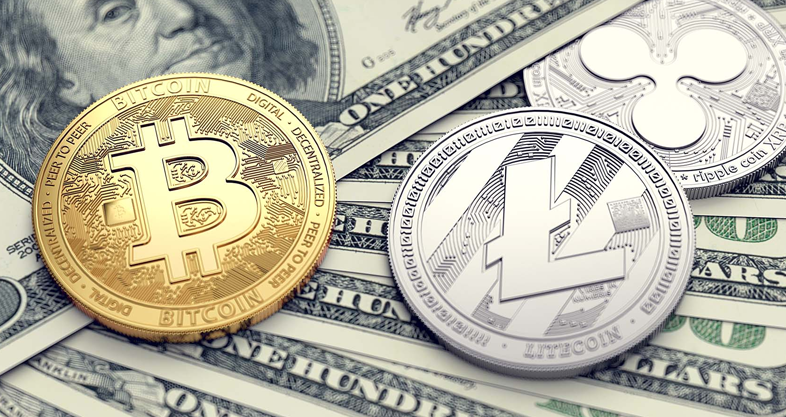share
Introduction
As global markets evolve and transform to counter growing uncertainties caused by global instability and conflict, modern alternatives to traditional financial institutions must be realized to ensure that businesses can adopt a more rewarding economic system in the future. In this article, we shall review the differences between fiat and cryptocurrencies and understand how each affects the future of the global economic system. Read On!
Understanding Fiat Currencies
The term “fiat” refers to a formal order or decree. The currencies which fall under the fiat category pertain to a legal tender issued by the government through centralized, state-run banks that conform to a system of debt-based credit transactions.
Fiat money is minted at specific denominations where each denomination has a particular value and can be exchanged for goods or services.
How Does It Work?
The exchange process is backed by a system of trust and debit/credit which works in the following way: when you use a bill (for example) of a specific denomination, that bill or coin represents a promise by the government that this particular physical currency has such and such value and is transferrable in exchange for commodities or services.
The value of the coin or bill is determined by the centralized government, affected by various factors such as global economic trade, interest values, and market inflation.
In the past, fiat currencies were backed by an equivalent reserve of gold or silver or any other precious commodity, where each denomination carried a value equal to a fraction of a set standard.
Uncertainty and Risk
With the abolition of the standard gold or silver-backed financial system in the early years of the 20th century, the fiat currency system now depends upon a network of global debt and credit to dictate the value of any denomination.
Each bill or coin you use now carries a value regulated by your country’s economic standing with reference to other countries with which it conducts trade. Each currency is evaluated against a base currency such as the dollar to determine its buying power and value.
Understanding Cryptocurrency
Contrarily, cryptocurrencies are supported by a financial system that is based on decentralized financial institutions that are not regulated by a central authority, and their value is independent of individual economies for each country.
In nature, a cryptocurrency is a digital asset that takes the form of a token, which is a unique string of code. A decentralized authority issues this token. The value of each token may be backed by its equivalent in terms of gold or silver, through a standard currency such as the dollar, or the stock value of the issuing authority.
How Does It Work?
A digital token, the cryptocoin, does not follow a system of debt and credit and carries a direct value transferrable in exchange for goods or services.
The value of the cryptocoin can face higher fluctuations than fiat currencies as it is not supported by a global economic system that is determined to keep its value at a specific percentage through multilateral trade agreements.
The digital token’s actual power comes from its interaction with the blockchain network, which is explained below.
What is Blockchain?
Blockchain is the term that is used to denote the technology that backs a network of decentralized, publicly verified, and transparent ledgers that record and store transactions, contracts, and financial information. The blockchain network is supported by “nodes” or “terminals” representing each user on the network.
When a transaction is initiated through the blockchain network, each node must verify and store the transaction information on its copy of the ledger.
This creates a publicly verifiable list of transactions called the ledger and the blockchain as a whole that can not be manipulated by a single entity. All existing users must verify the transaction before it is completed.
This enables the creation of a financial system where fraud, theft, and malign actions are impossible to be executed as each transaction can be traced and is verified by millions of nodes each cycle.
Each participating terminal creates a copy of the transaction, and each exchange is recorded by all participation nodes on the blockchain network.
Advantages of Cryptocurrencies
Security and Stability
By creating a decentralized financial system, financial tools such as debt, equity, and interest are rendered useless. Each transaction carries real value rather than a decree of trust that is not backed by any physical equivalent, as is the case with fiat currencies.
Each token carries a value that is subject to change, just as is the case with fiat currencies. The advantage is that it is unaffected by global market changes and eliminates the risk of economic collapse by a significant magnitude.
Free From Manipulation
Through the decentralized nature of the currency, the value of each token remains free from manipulation by central banks and other financial institutions that often engineer the value of fiat currency by manipulating the market to keep the price of goods at a global average.
In this way, goods and services can be bought and used at their actual price and value rather than at an engineered and manipulated price that fuels international trade and markets at present.
Countering Interest and Inflation
The use of cryptocurrencies also eliminates the risk of artificial inflation and quantitative easing of the market, where central financial authorities flood the market with more currency than usual, resulting in a gradual decrease in the buying power of the fiat currency which ultimately leads to inflation and recession.
Fluctuating Markets
Fiat currencies can also enable markets to withstand better and regulate fluctuations in global trade that may arise due to unforeseen circumstances such as natural disasters or political instability.
This allows the cryptocurrency token to stabilize the value of markets everywhere. It creates a stable framework that is unaffected by on-ground changes and retains its value in principle and practice.
Challenges for the Future
As the blockchain technology and the cryptocurrency market continue to garner interest across the world, new prospects for their application are taking root to revolutionize the financial culture of institutions everywhere.
Adopting a New Perspective
The primary challenge with the adoption of crypto as the primary means of financial transaction is the high amount of fluctuation that each token can experience within a short time.
This issue can be quickly resolved with an increase in the integration and adoption of the technology, as markets tend to stabilize themselves if enough entities are active.
Restructuring the Financial World
With an increase in the adoption of digital cryptocurrencies, a restructuring of financial institutions will follow that shifts the focus of operations in favor of more agile and liquid financial tools where the institutions of interest and debt are discarded as the primary means of profit.
In such a system, profits will be dictated by the increase in the value of a commodity or service based on global demand and supply principles. It is not based on artificial tools and methods aimed at creating inflated market prices for the sake of higher profits.
Reluctance to Change
The resistance that is seen today to the adoption of cryptocurrencies worldwide arises primarily due to the reluctance of governments and institutions to adopt a system that can completely transform the financial institutions that partake in a global economy based on interest and manipulation of value and make many factors wholly redundant and useless.
Final Word
In the end, the fact remains that no matter what anyone might say, the future rests in cryptocurrencies and blockchain technologies as the prevailing financial system. The only thing that remains to be seen is how quickly this economic revolution can be spread across the globe.









